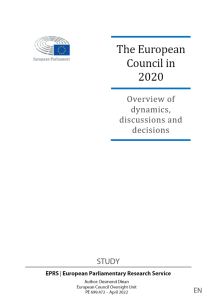This follows a decision by the Council on 25 March 2020 to open accession negotiations, which was endorsed by the members of the European Council on 26 March 2020, as well as the approval by the Council on 18 July 2022 of the Negotiating Framework for the negotiations with Albania, in accordance with the revised enlargement methodology.
The EU delegation was headed by Jan Lipavský, Minister of Foreign Affairs of the Czech Republic, and the European Commission was represented by Olivér Várhelyi, Commissioner for Neighbourhood and Enlargement. The delegation of Albania was led by Prime Minister Edi Rama.
Albania is already a close partner of the EU in the Stabilisation and Association Process for the Western Balkans. The EU and Albania stood side by side during the COVID-19 pandemic, and also in the face of Russia’s unjustified and unprovoked military aggression against Ukraine, and its impacts on the entire European continent. As stated by the Council on 14 December 2021, the EU delegation welcomed the continued determination of Albania to advance the EU reform agenda and deliver tangible and sustained results.
The EU delegation notes that the Commission has advanced its work to carry out and complete the process of analytical examination of the EU acquis and stands ready to present in due time its results to Albania. On this basis, it invites the Commission to continue to assess the state of preparedness of Albania for opening negotiations in specific areas and identify the issues that will most likely come up in the negotiations, starting with the fundamentals’ cluster, which in accordance with the Negotiating Framework, will be opened first once Albania has met the relevant criteria agreed by the Council.
The EU also highly welcomed the fact that Albania has fully aligned with the EU Common Foreign and Security Policy decisions and declarations and encouraged Albania to continue to do so.

The European Council in 2020 |
Statement by President Michel
Today, we have finally taken important steps forward in the opening of accession negotiations with North Macedonia and Albania. Intergovernmental Conferences at ministerial level were held in Brussels to implement the decision by the European Council of March 2020 to open accession talks. I congratulate the authorities and the citizens of North Macedonia and Albania for this long-awaited achievement.
I realise that the road to reach this point has been long and challenging. As I have seen first-hand, the debate was particularly intense in North Macedonia, but has ultimately led to a positive vote in the national parliament, the Sobranie. Macedonians, today your country is taking the first key step on the path of negotiations with the European Union. As I said in Skopje a few days ago, North Macedonia can count on my full support on this journey.The country has undertaken important reforms and I know Macedonians are committed to our common EU future.
I am also pleased that Albania’s negotiations’ path is now on its way. Albania has worked hard to ensure results from reforms and a track record of implementation in all areas identified by the Council. Today is a historic day and a time to celebrate what has been achieved, but also a time to look at the challenges ahead with a clear objective: to advance on the EU path without delay.
Today’s holding of IGCs unlocks the next phase for both Albania and North Macedonia. The screening process will now start, not only the updated explanatory screening, but also bilateral screenings. Hard work lies ahead for our negotiators, in Skopje, Tirana and Brussels, in this crucial phase. In the coming months, this will build a solid basis for the opening of the clusters of negotiating chapters.
In parallel, the EU will focus on re-energising the enlargement process. At the EU-Western Balkans leaders’ meeting and the June European Council, we decided to inject a new dynamic and a new determination to move forward together. We will further advance the gradual integration of the EU and the region, already during the enlargement process. The Western Balkans belong in the EU, and we need to make this happen. Our future is together, and the future of our children will be more prosperous and safe as we advance our project of shared values.

HCCH CODIFI CONFERENCE: The 2015 principles on choice of law in international commercial contracts |







Leave a Reply